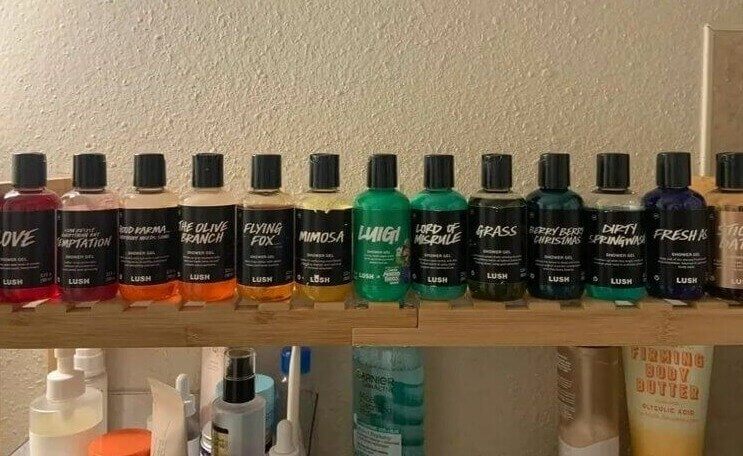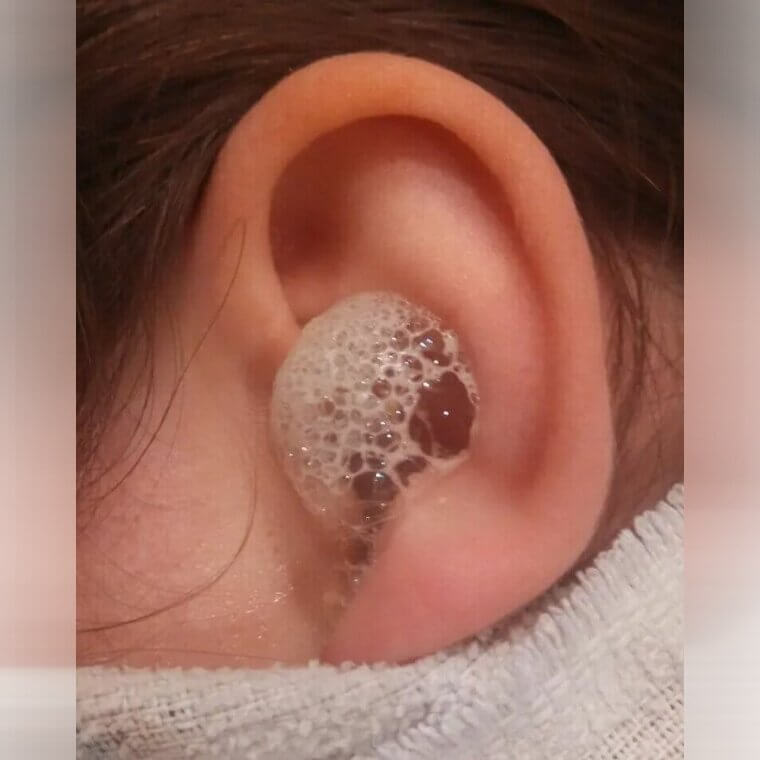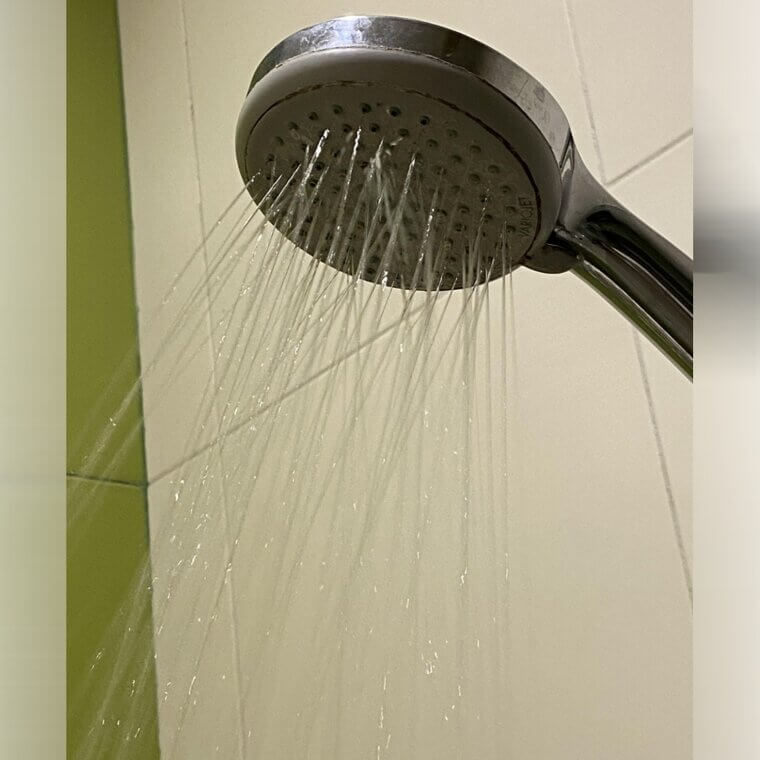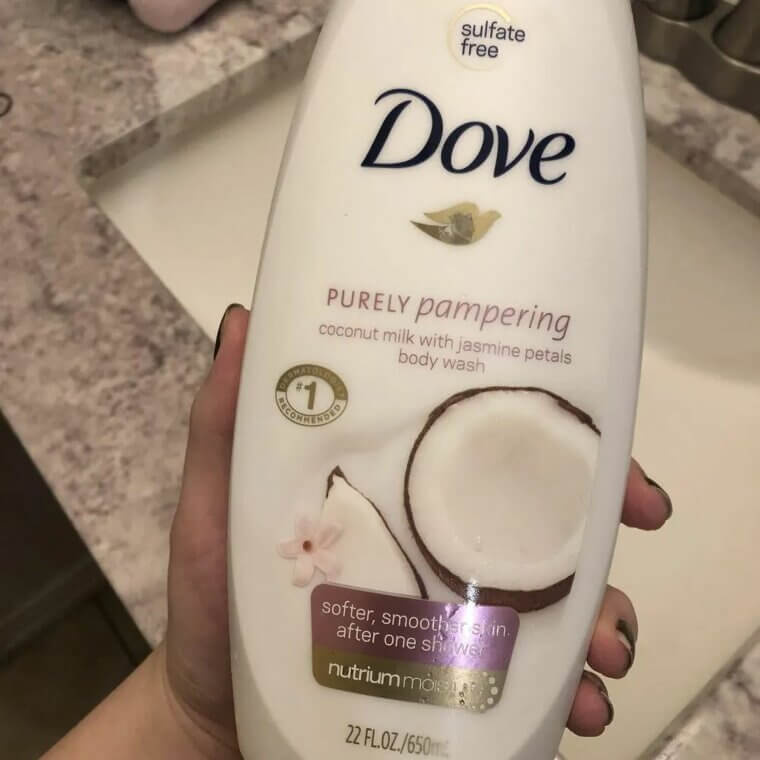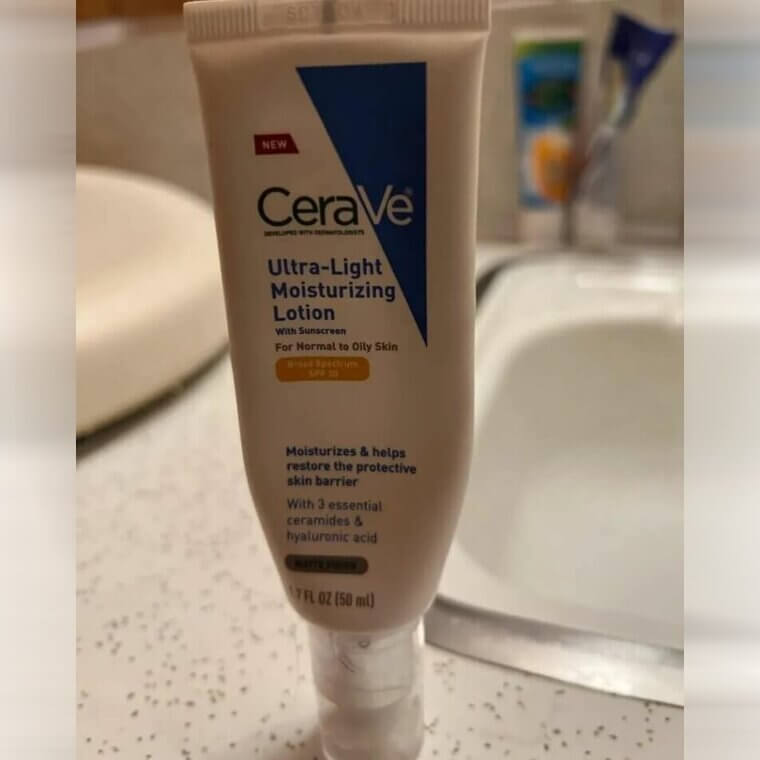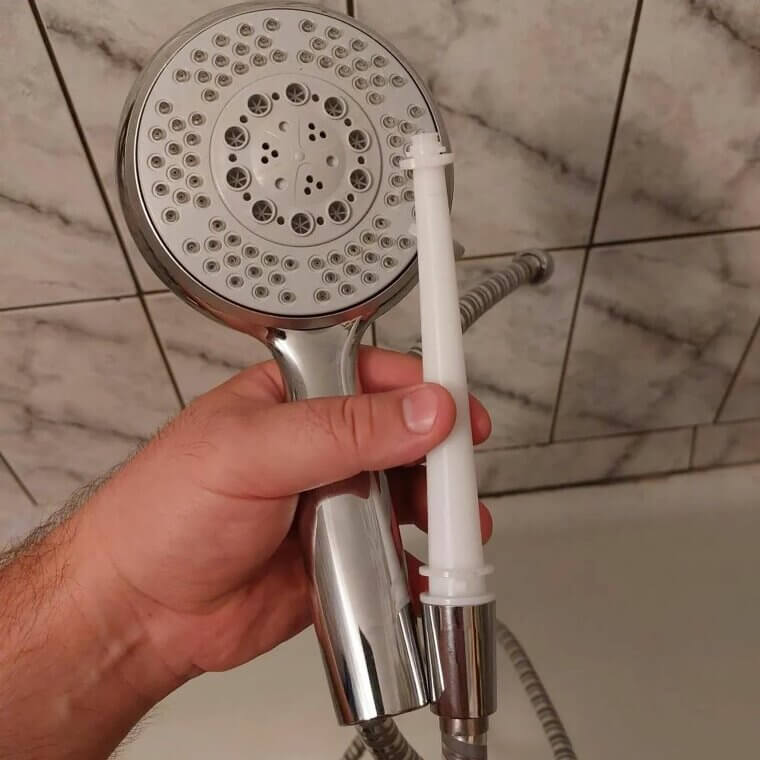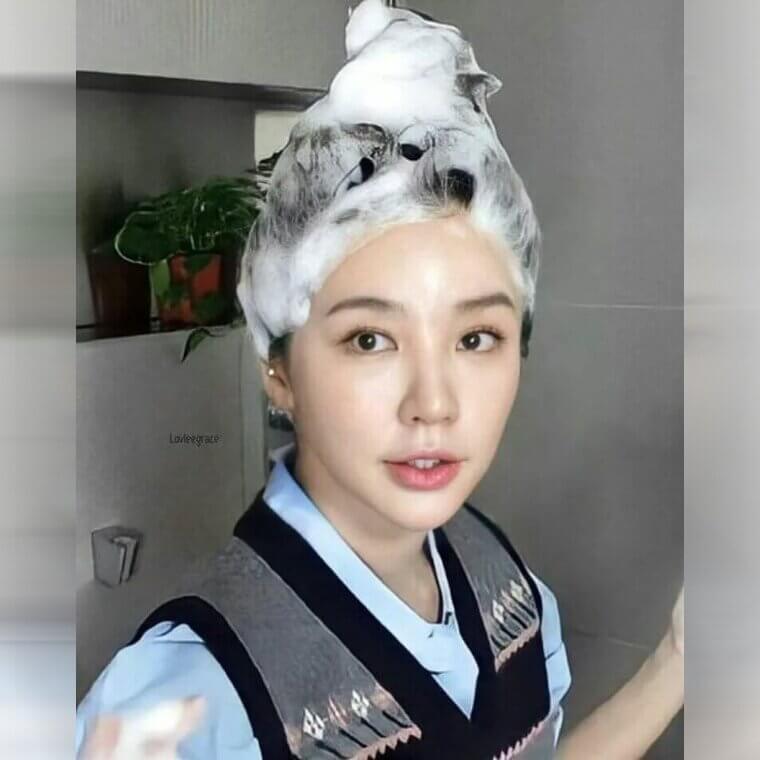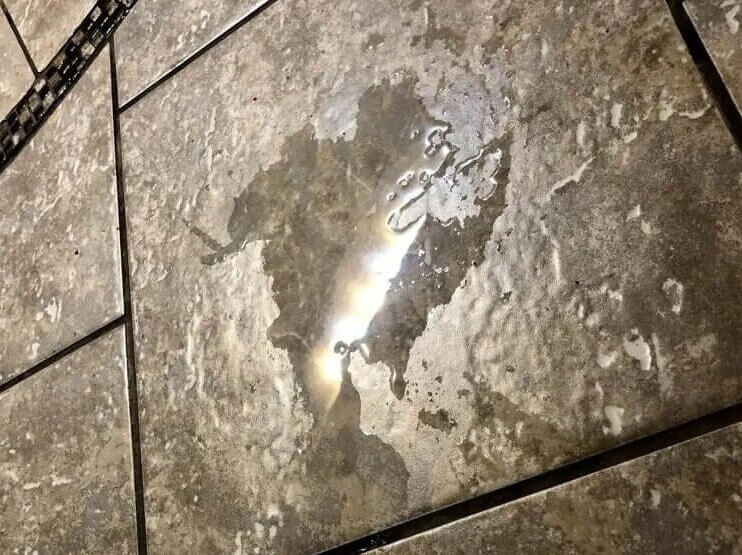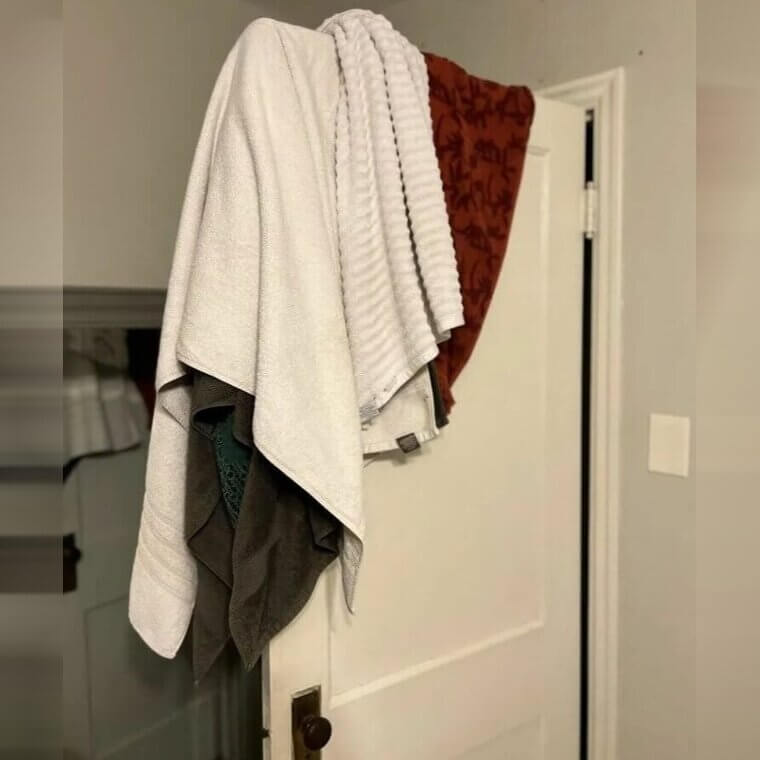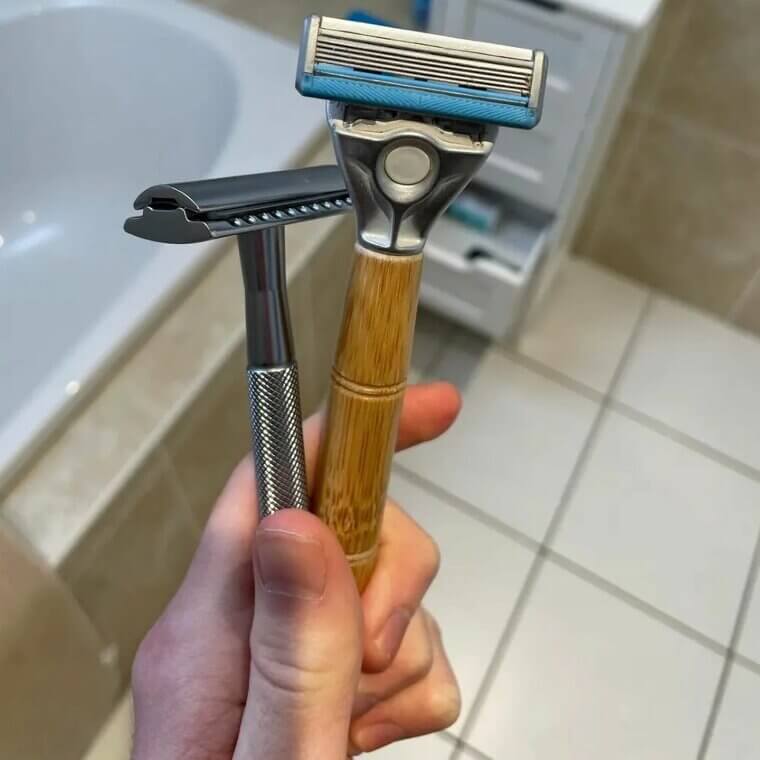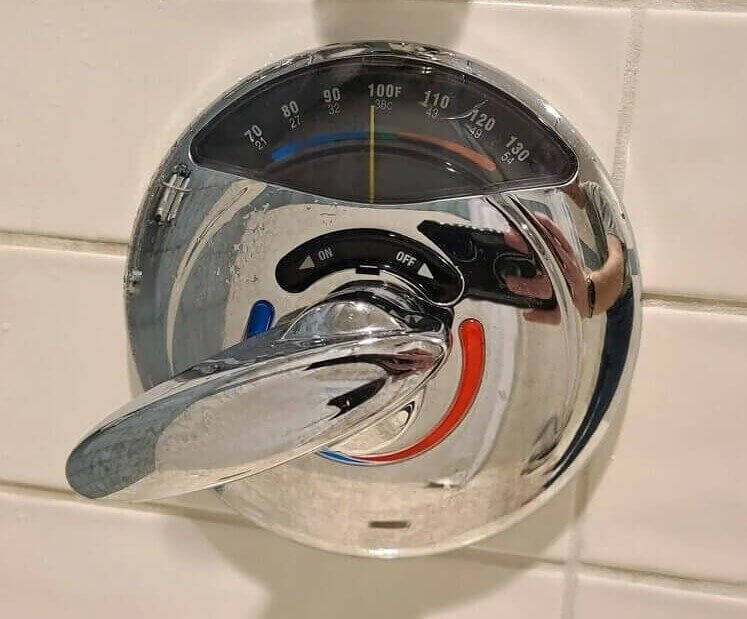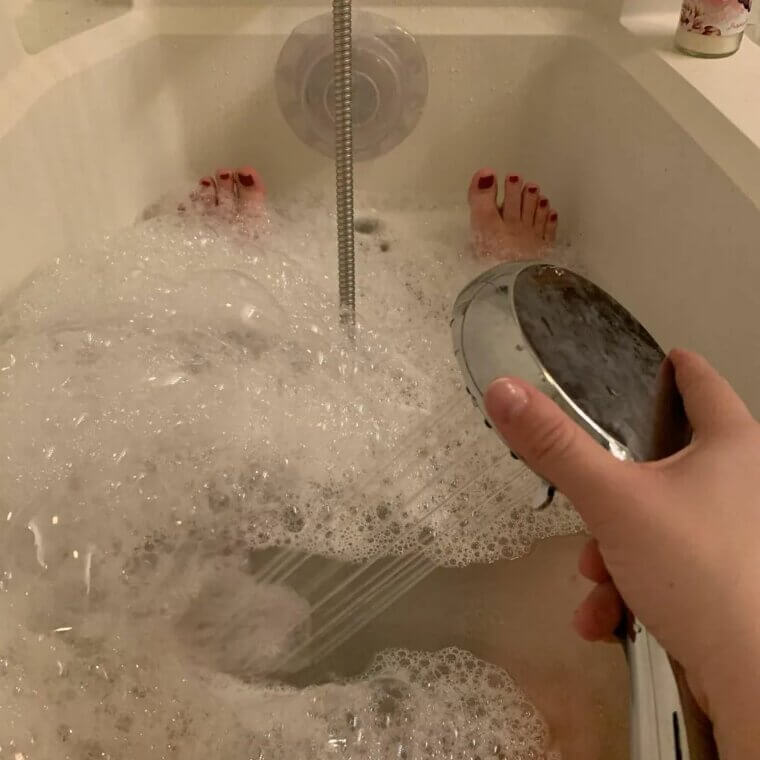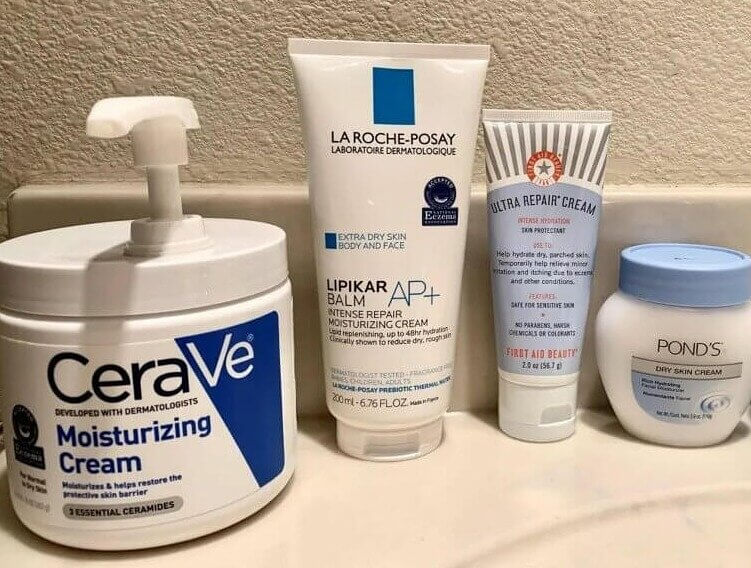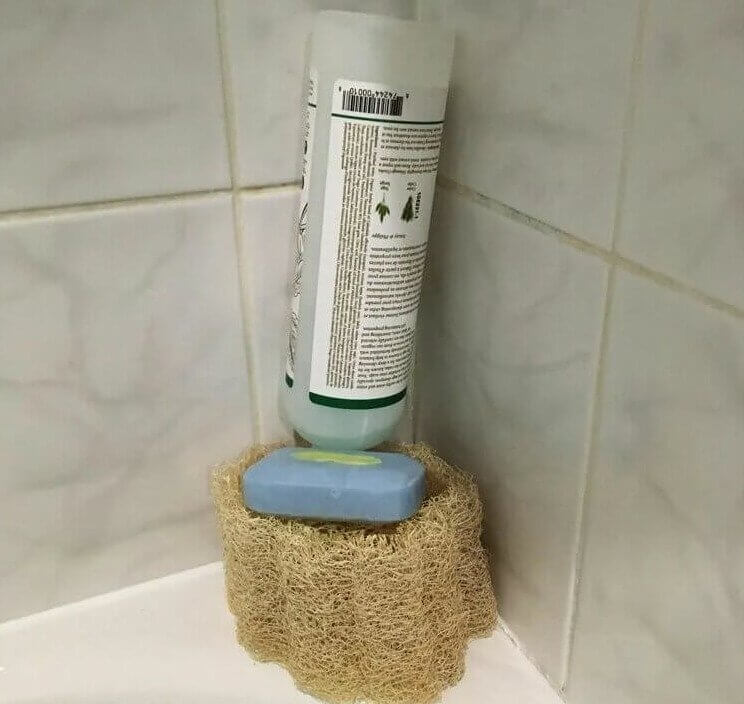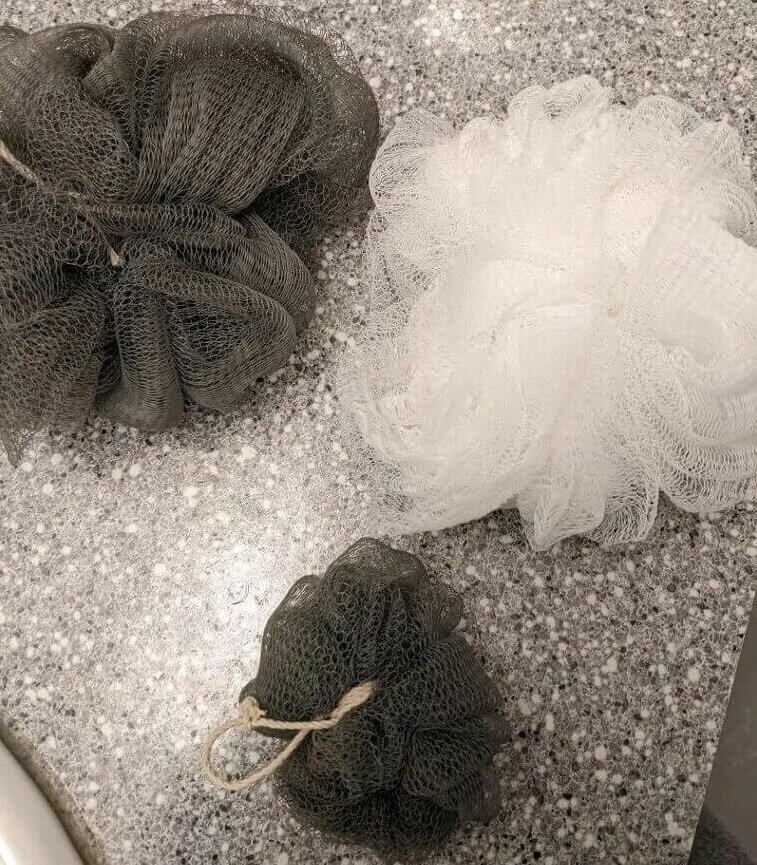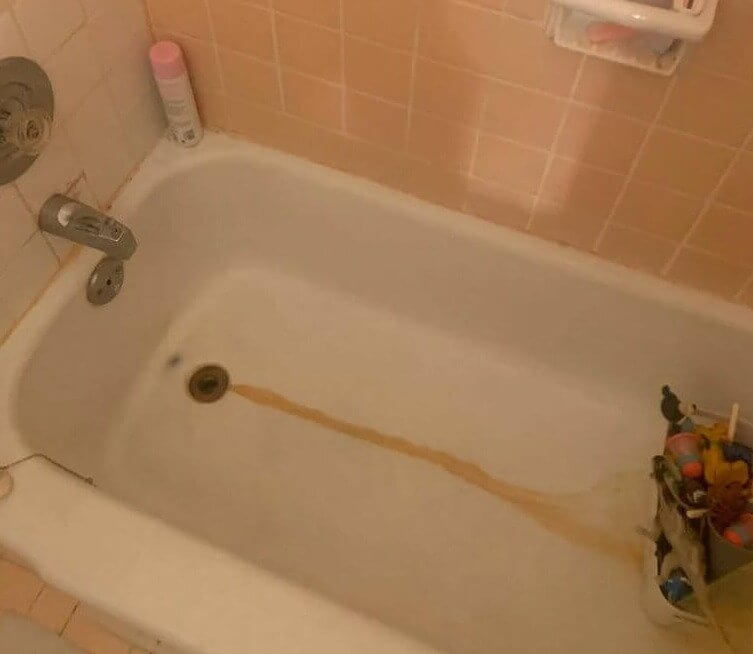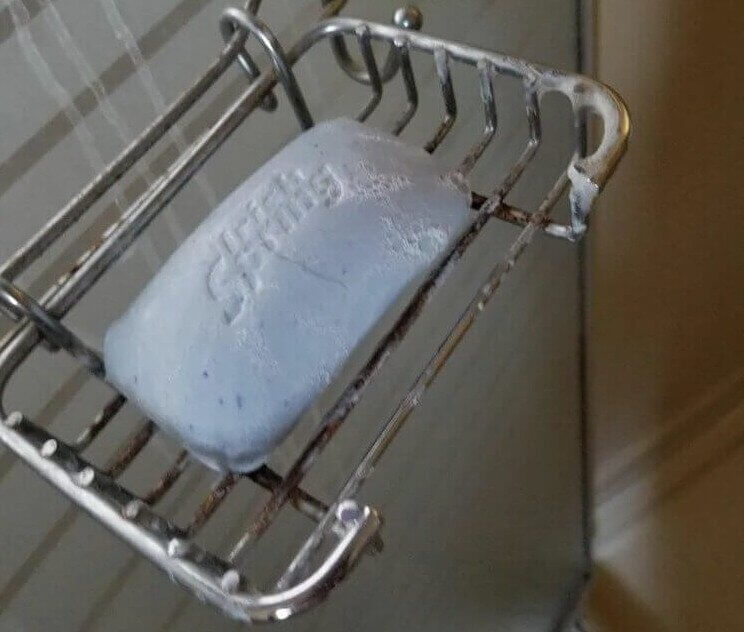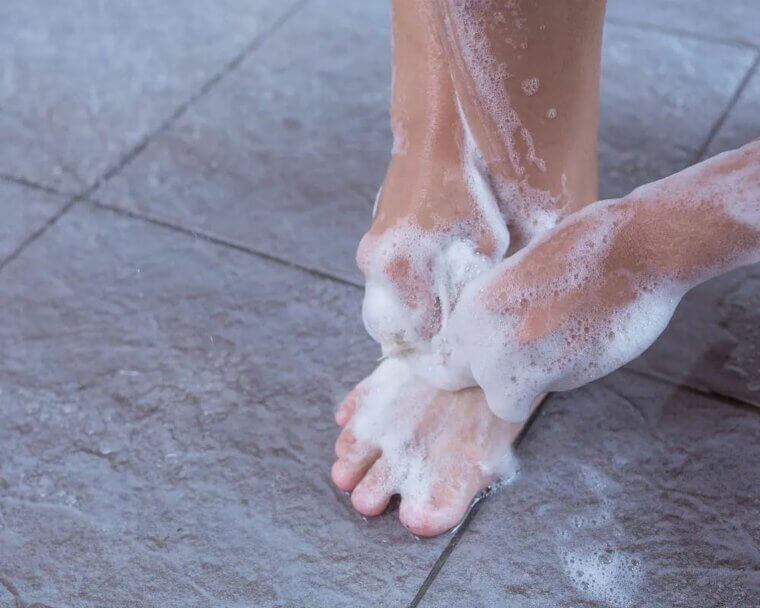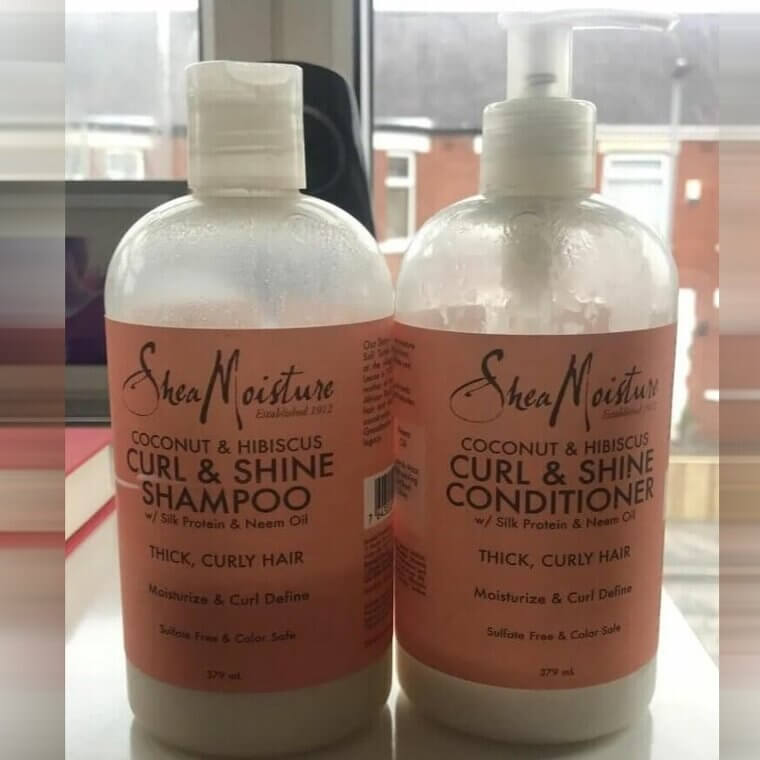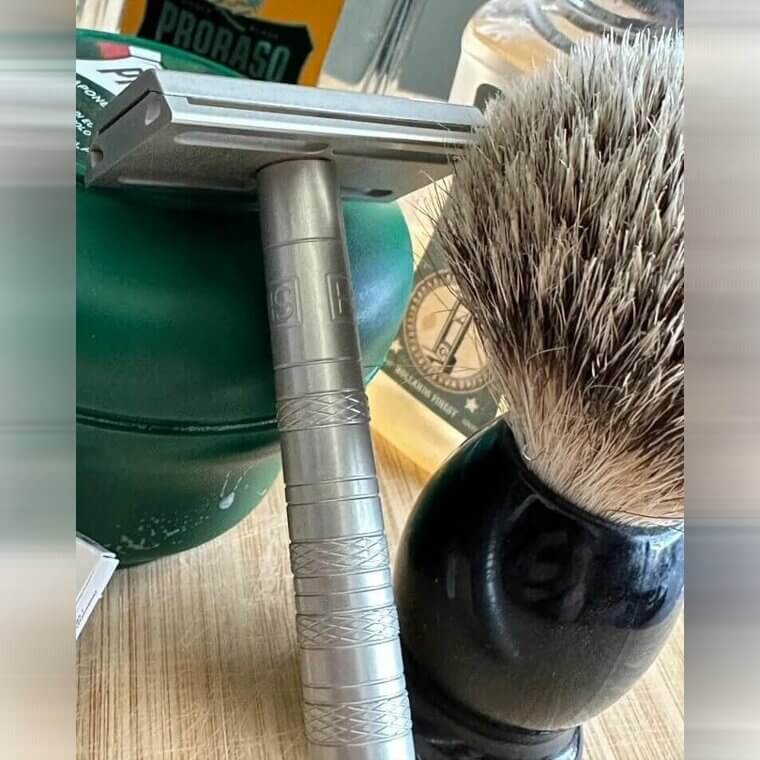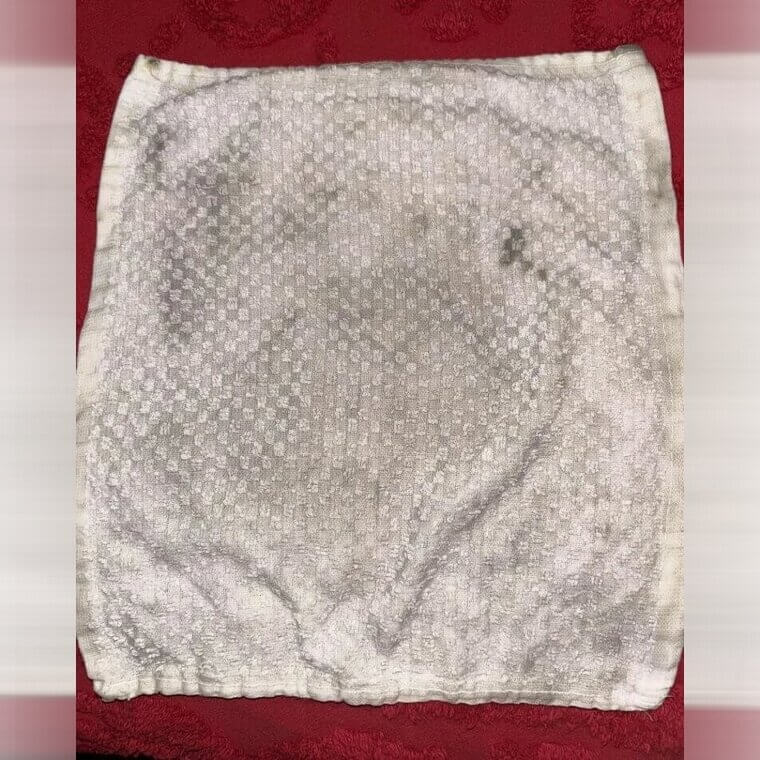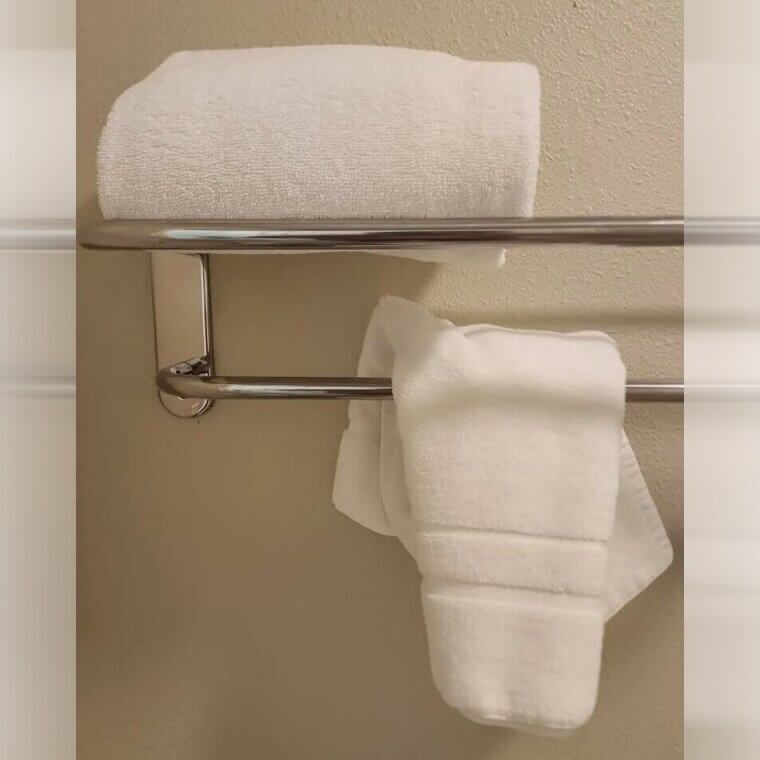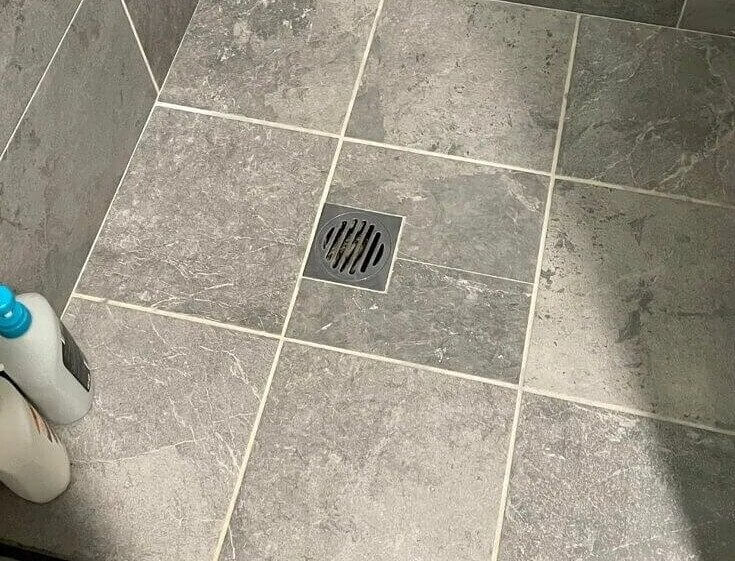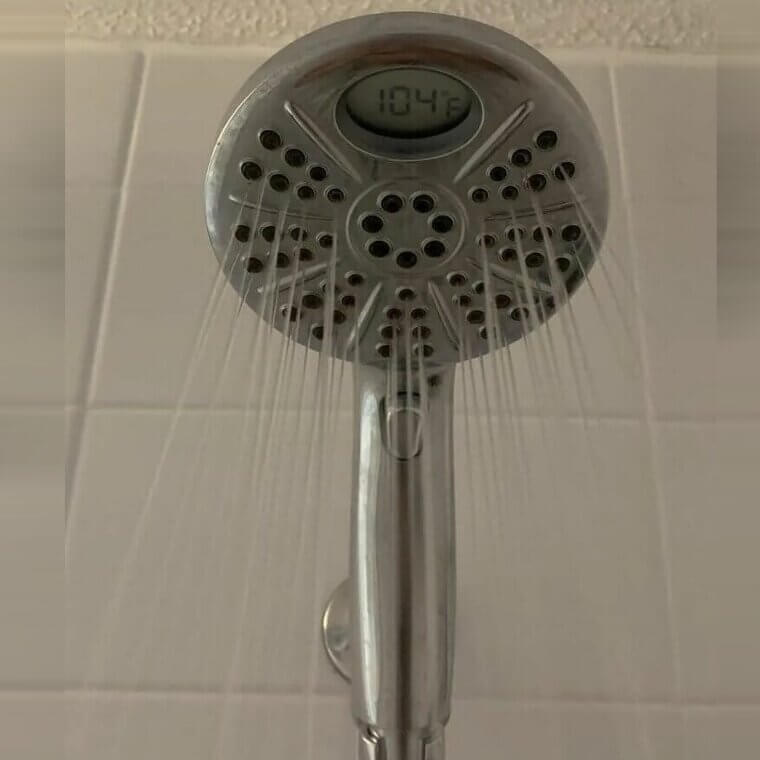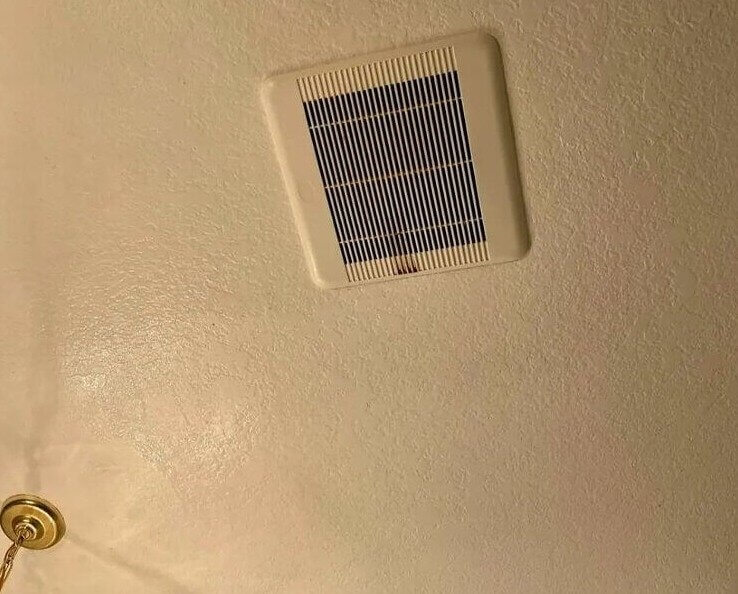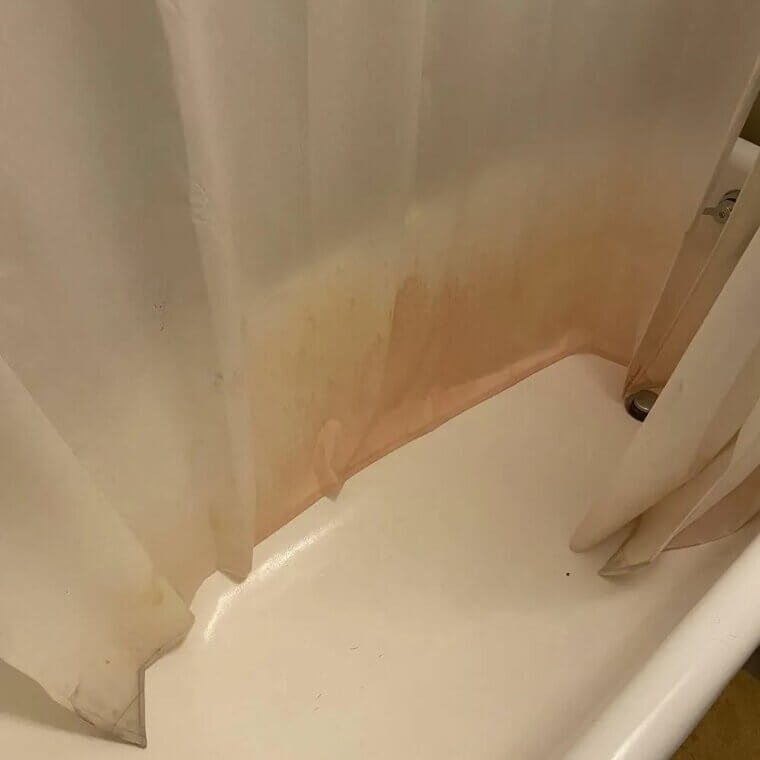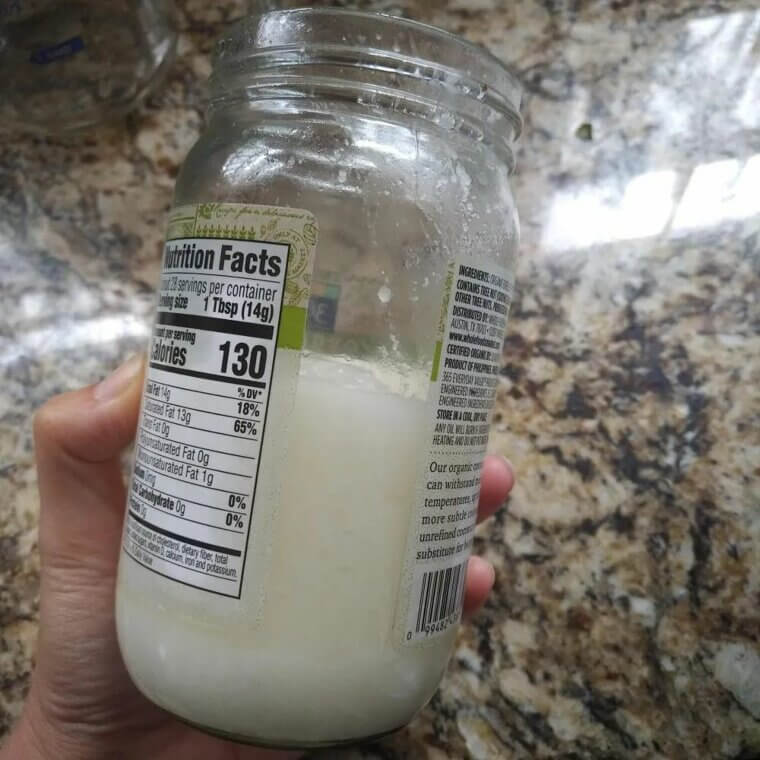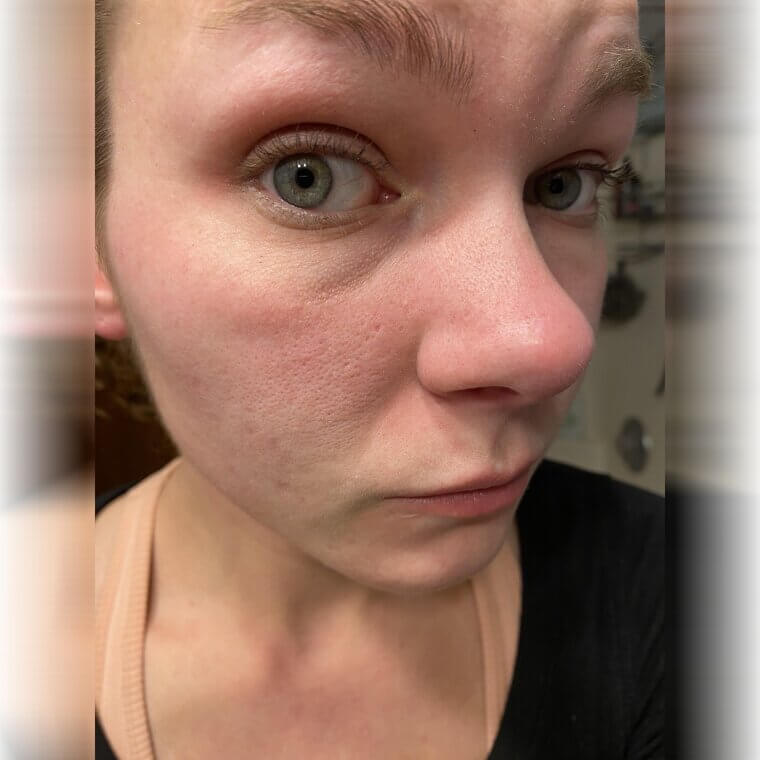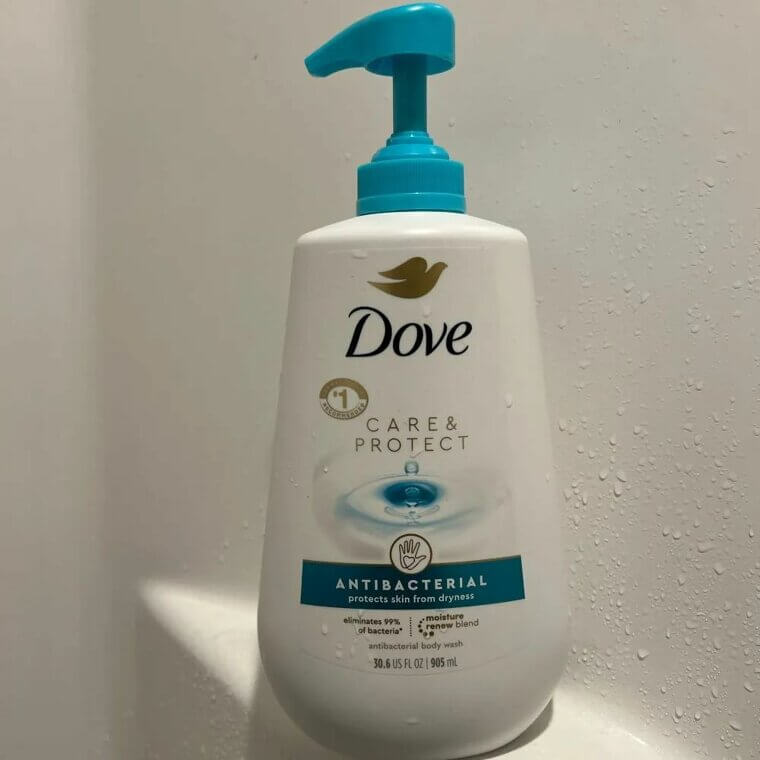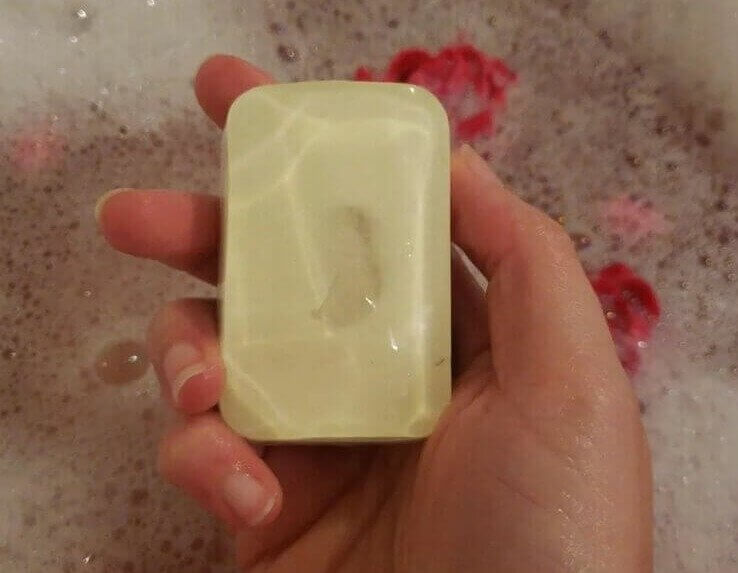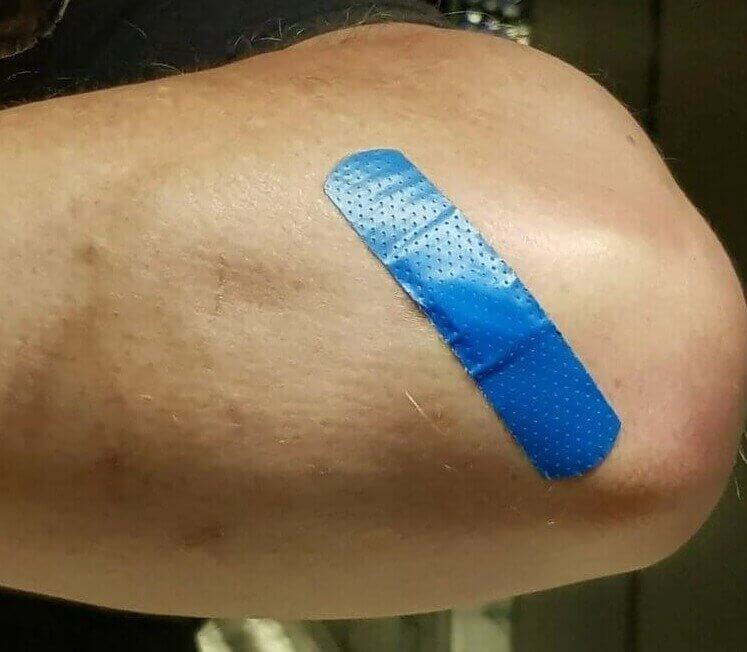Overusing Shower Products
Some people think that the more product they use, the cleaner they will be. However, this isn’t the case! You simply don’t need to lather your body in as much product as possible. In fact, cleaning products, such as soap and shampoos, contain chemicals that, when used in abundance, can actually harm the skin and hair. For this reason, use your soaps sparingly. This will not only save you some money, but it will also promote healthy skin and hair.
If you're guilty of this simple yet damaging habit, turn over a new leaf today. Your body, hair, and wallet will thank you for it!
Neglecting the Nooks and Crannies
When showering or bathing, it’s always recommended that you clean every single nook and cranny of your body. This doesn’t mean washing everywhere… It simply means getting into every fold or crease, as this is where bacteria and germs develop. Many people forget about their toes and ears… These are actually hotspots for infection and should never be neglected! That said, it doesn't mean you need to overdo it.
Washing these nooks and crannies can be done twice or three times per week with perfect efficiency.
Not Installing a Grab Bar
While this one isn’t so much of a bad habit, it’s definitely something that you should look into. So many people take grab bars for granted! While they may not look the best, you would be surprised by how many people end up falling and hurting themselves while showering. After all, the shower floor gets incredibly slippery with all that water and excess soap. Even if it’s just precautionary, there really is no downside to installing a grab bar.
Of course, having something to hold onto in the shower becomes increasingly important as we age or if you have any disability that makes it difficult to stand for long periods. Remember that safety is far more important than looks!
Showering Too Frequently
A lot of people think that the more they shower, the better. However, it is possible to clean yourself too much. When you shower, you strip your skin of its natural oils, leaving it dry and more prone to irritation. More so, dry skin can develop small cracks, allowing for the penetration of bacteria. While you may enjoy the feeling of being clean, it is actually more damaging than beneficial in the long run. One shower a day is recommended - any more than that is simply overkill.
In fact, unless you live in a really hot and humid climate or build up a sweat daily, you might not even need to shower every single day.
Taking Long Showers
Let’s face it… We all look forward to stepping under a hot shower after a long and hard day of work. Some of us see showering as a form of stress relief more than anything else. As it turns out, showering for too long is actually damaging to the skin. There are special cells (called keratinocytes) that protect your skin and are responsible for producing natural oils. When you shower for too long, you irritate and damage these cells.
According to dermatologists, we should limit our shower time to between 5 and 15 minutes. While you may be inclined to stand under the warm stream for much longer, keep in mind that your skin will thank you in the long run!
Using Body Wash on Your Face
We’re all guilty of this one. When you’re standing in the shower with nothing but body wash at your disposal, you are likely to use it on your entire body, including the face. However, dermatologists recommend against this, as body wash is not formulated to be used on such sensitive skin. Instead, it is composed of much harsher ingredients that will irritate and damage the thinner skin on the face. After all, there is a reason that face-specific cleaning products exist.
If you don’t have any other soap available, be sure to use a moisturizer afterward. This will help restore any of the oils that the soap has stripped from the skin.
Using Products Not Suited To Your Skin Type
There are a whole bunch of cleaning products out there to choose from. In fact, it can get a little bit overwhelming at times, especially if you don’t know what you are looking for. There are products suited to dry skin, oily skin, and both. If you use a product that is not suited to your skin type, it could lead to breakouts or the formation of itchy, dry patches.
To avoid this, be sure to identify your skin type before investing in your next cleaning product. Not only will your skin look better, but it will also start to feel better with time.
Using a Plastic Shower Head
A lot of showers are fitted with plastic shower heads instead of metal. While this may initially be more budget-friendly, it will actually lead to a number of problems down the line. For starters, plastic shower heads are prone to bio-film build-up, which enables bacteria growth. Without properly disinfecting your plastic shower head every few weeks or so, you will end up showering in bacteria-filled water and exposing yourself to more germs than if you were to use a metal shower head.
While metal shower heads are slightly more pricey, they are also better quality and will last longer. With that being said, experts also recommend cleaning your metal shower head frequently!
Rubbing Yourself Dry With a Towel
Just about everybody is guilty of this bad shower habit. When getting out of the shower, you are likely to reach for a towel and start rubbing and scrubbing yourself dry. While this may get the job done quickly, it is also incredibly bad for your skin. When showering, you strip the skin of natural oils, leaving it vulnerable and sensitive for a few hours. This is especially true if you are freshly shaven.
In order to avoid damaging the skin, we recommend gently patting yourself dry instead. By taking the extra time to be gentler on the skin, you can avoid the formation of dry, damaged patches and skin flare-ups.
Washing Your Hair Daily
Have you ever been told to wash your hair daily? While you may love the feeling of freshly washed hair, this habit will only lead to damage in the long run. Your hair consists of a carefully balanced biome that becomes compromised when you wash it too frequently. So, while washing it may eliminate harmful bacteria, it also eliminates the good bacteria that keep strands strong and healthy. By stripping your hair of its natural oils, your scalp will become irritated.
Irritating your scalp can cause inflammation and increase your risk of hair breakage. We recommend washing your hair a maximum of twice a week.
Leaving Water on the Bathroom Floor
When we step out of the shower or bath, we often leave a trail of water behind us. While you may think that this water will simply dry on its own, it can actually lead to long-term damage to your flooring. In order to avoid this, simply dry yourself off as soon as you stand up. Have a towel nearby so that you don’t have to walk across the room while wet.
The last thing you want is to have family members (or yourself) slipping unexpectedly along the bathroom floor and getting injured.
Not Using a Shower Cap
Our hair is much more fragile when wet. For this reason, unless you are washing your hair, you should try to keep it dry when showering or bathing. This is where a shower cap comes in handy. Not only will it keep your hair out of the water, but it will also protect it from any humidity, which can only result in damp hair. This trick can reduce the frizz factor by 100%.
There aren’t any downsides to wearing a shower cap, yet so few people actually wear them! If you want to improve your overall hair health, they are definitely worth the extra effort.
Wrapping Your Hair in a Towel
It’s incredibly convenient to wrap your hair in a towel after stepping out of the shower. With this being said, it's important to remember that hair is more prone to breakage when wet. By tightly wrapping your hair in a towel, you tug and pull on the strands, leading to fall out and damage - even though you may not always see it. You can still wrap your hair in a towel… Just be sure to do it very gently.
More so, we recommend using a soft towel and giving your hair a few minutes to air dry beforehand. Remember that letting your hair dry naturally is always the way to go.
Washing Your Face in the Shower
For a lot of people, it only makes sense to wash their face in the shower while washing the rest of the body. However, it's important to remember that facial skin is some of the most sensitive on the body. Shower water is hot and comes out at a high pressure, which can cause extensive damage to the face over time. If your skin is prone to irritation and damage, we highly recommend washing your face in the basin instead.
The sink water is much gentler and cooler, making it much more suitable. Even though this small change in your routine may seem minor, it can drastically help in keeping your skin healthy and well-nourished.
Using Dirty Towels
While we may hate to admit it, just about everybody is guilty of this bad habit. Let’s face it… Cleaning towels is inconvenient. They are so big and bulky that they take up an entire laundry load on their own. However, damp towels are the perfect breeding ground for harmful bacteria. If you use the same towel to dry yourself over and over again, you will eventually start to spread these germs onto your skin.
We recommend washing your towels after three or four uses. To be on the safe side, you could also simply wash your towels once a week. Trust us; the extra effort will be worth it in the long run!
Keeping Razors in the Shower
Storing your razors in the shower is very convenient. However, it’s important to remember that razors are made of metal, meaning they will start to rust when exposed to water for long periods. Even when you finish showering, the shower itself is still a damp place, meaning that your razor will rust before the next time it is used. Do we really need to explain why dragging a rusty metal blade across your skin is a bad idea?
When shaving, you create small holes in your skin where the hair used to be. By using a rusty razor, you run the risk of exposing these open holes to harmful bacteria, leading to infections and skin irritation.
Avoiding Cold Showers
Let’s face it… Everybody prefers hot showers to cold showers. In fact, most people avoid cold showers completely, waiting for their water to heat up before stepping foot inside. However, cold showers are actually good for your health! Research has shown that people who endure cold showers for just 30 to 90 seconds a day are 30% less susceptible to illness. We aren’t trying to convince you that cold showers are the ultimate cure for the flu, don’t worry!
With that being said, they can strengthen your immune system, which is always a major plus. More so, cold water is much softer on the skin, preventing unnecessary oil removal and damage.
Over Exfoliating
People who struggle with severe acne sometimes think that over-exfoliating is the key to smooth skin. However, research shows that this can actually have the opposite effect. When you over-exfoliate, you strip your face of the natural oils that it requires to keep skin healthy. More so, you remove skin cells - both dead and alive. This can lead to severe irritation and inflammation. Your skin also becomes more susceptible to harmful bacteria.
There is such a thing as too much exfoliating. Dermatologists recommend exfoliating your face a maximum of once or twice a week. This will help keep your face smooth and clean without causing excess damage.
Taking Scorching Hot Showers
Most of us love taking scorching hot showers. While the hot water may relax your muscles and mind, it can actually severely damage your skin. Regardless of whether or not you can tolerate scorching hot water, it will strip your skin of its natural oils, leaving it susceptible to damage and cracking. This becomes even more of a problem as we age, as our skin gets thinner and thinner.
Don’t worry - this doesn’t mean you can’t shower with hot water. Just avoid scalding hot water and limit the amount of time that you spend under hot water.
Moisturizing After Drying
Our skin dries out very quickly after showering. In fact, most people can feel their skin tightening up immediately after stepping out of the shower. This is a sign that the natural oils have been removed. As a result, they will dry themselves off before applying a layer of moisturizer. However, it’s actually recommended that you moisturize your skin while it is still wet! Skin is much more absorbent when wet.
Even though it may sound counterintuitive, your skin will thank you in the long run! After all, who are we to argue with the experts?
Storing Loofahs in the Shower
Even though we may not like to hear it, showers are a breeding ground for bacteria. For this reason, leaving your cleaning materials in the shower is never a good idea, as they are likely to be covered in germs the next time you use them. This is especially true for loofahs! While they may be a great product to use for exfoliation, they are also a hotspot for mold and even yeast. Most people don’t think about cleaning or replacing their cleaning products.
According to dermatologists, however, dirty face wipes and loofahs are actually one of the leading causes of acne outbreaks. So, if you want to improve your overall skin health, be sure to store your loofah in a dry location!
Using a Loofah After Shaving
When you shave, small holes open up in your skin. Even though you can’t see them, these holes can be a hotspot for bacteria and germs, leading to acne and ingrown hairs. If you use a loofah to exfoliate your skin after shaving, you increase your chances of spreading this bacteria, especially if your loofah is dirty and old! Dermatologists admit that scrubbing your freshly shaved skin with a dirty loofah is one of the worst shower habits out there!
In fact, they recommend that you don’t use a loofah for several days after shaving, giving these holes time to close up. While loofahs may be a great exfoliating tool, there are a number of more suitable products that don’t cause damage to the skin.
Forgetting to Clean the Tub or Shower
If you think about it, showers are probably one of the most unsanitary places in the house. After all, they are used to wash away dirt, grime, oil, and a whole bunch of other unhygienic substances. With that in mind, how often do you wash your shower or bathtub? For most of us, it’s not very often. This leads to the growth of mold and bacteria, exposing us to harmful germs every time we go to clean ourselves. Even if your shower doesn’t look dirty, it probably is.
While you don’t need to scrub it down after every shower, we recommend cleaning your shower at least once a month. While adopting this habit may be good for your overall health and sanitation, it also ensures that your bathroom looks a whole lot more neat and tidy!
Using a Soap Dish
Soap dishes are breeding grounds for bacteria. Research shows that they may actually be the most dirty part of your shower. While they may look nice and have a neat aesthetic, it’s important to remember that they are used to hold the thing that removes dirt from your skin. In other words, much of this dirt is likely found on the soap itself. More so, soap dishes get slimy over time, further boosting bacteria production.
You’d be much better off storing your soap outside of the shower. While this may not be as convenient, it will keep the soap dry and stunt bacteria growth. Additionally, your soap will last much longer, as it won’t dissolve away in the moisture of the soap dish.
Forgetting to Scrub Your Feet
Our feet are arguably the dirtiest part of our body. After all, they are constantly in contact with the ground, picking up dirt and a whole bunch of other unsanitary things. For this reason, it’s pretty self-explanatory that our feet should get a good scrub in the shower. This doesn’t mean simply allowing soap suds to run down your legs onto your feet! Instead, pick up a cloth, coat it with a good amount of soap, and scrub your feet until they look clean!
Bacteria grows all over our feet, meaning they cannot be neglected in the shower. You’d be surprised by how many people forget about their feet or simply choose not to clean them. Don’t make this common mistake!
Using Conditioner From the Top of the Head
When it comes to conditioning their hair, most people simply lather the product in from their scalp to their ends. However, according to research, it’s actually more beneficial to do this in reverse. In other words, starting from the bottom and working your way up towards the scalp. Oil gathers around the crown line, and adding conditioner there will simply irritate the skin. Since your ends are the dirtiest part of your hair, this is the best place to start.
You can then work your way up without going too crazy around the crown line. While this change may seem minor, it can also make all the difference in promoting thick and healthy hair!
Waiting to Shower After Exercising
Nobody likes to feel dirty or sweaty. For this reason, it’s pretty common for people to shower as soon as they finish exercising. However, if you don’t, it’s definitely a habit that you should get into. Our sweat provides the perfect place for bacteria to breed, and if left on the skin for too long, it can lead to rashes, acne breakouts, or worse. That said, it’s not like failing to take a shower straight after working out is the end of the world. In fact, you may not even experience any breakouts.
However, if it becomes a habit, your skin will definitely start to give you a few warning signs that something needs to change. After all, who wants to go about their day covered in dried sweat anyway?
Showering With Hard Water
‘Hard’ water is essentially water that contains high amounts of calcium and magnesium. These elements react badly with substances in hair products and soaps, making them less effective. It is particularly bad for hair and skin, stripping it of natural oils and leaving it prone to damage. Unfortunately, many cities in the US use hard water, which is why we need to find appropriate ways to ‘soften’ it. For example, there are filters available that can be attached to your shower head.
You could also invest in a water softener, which will be attached to your pipeline, ensuring that your entire house has access to soft water. These nifty tools will also keep your shower and bathtub cleaner, preventing the build-up of limescale.
Using the Same Razor Over and Over Again
It’s safe to say that most of us are guilty of this. While it would be ideal to replace your razor after every second to third use, a lot of us simply keep using our razors until they become too blunt or rusted. However, these razors might damage your skin and increase your risk of developing an infection. Luckily, dermatologists have set the record straight: We don’t actually have to throw away our expensive razors so frequently - we just have to maintain them.
The best way to do this would be to wash your razor after every use before drying it off carefully with a towel. This will help prevent bacteria build-up, as well as remove any excess moisture to stop the blade from rusting.
Forgetting to Wash Your Washcloths
Washcloths can be found in just about every bathroom. However, most people forget to wash them, which makes them completely useless in terms of being able to clean anything. After all, what’s the point of dragging a dirty, bacteria-filled cloth across your body? Damp and dirty places are the perfect breeding zone for bacteria, and when you leave your used washcloth hanging over the shower or bathtub, this is exactly what it becomes.
Dermatologists recommend washing your cloth after every few uses or once a week. Of course, this also depends on what the washcloth is actually used for. If you only use it to dry your hands, it can be washed less frequently.
Using Hard and Rough Towels
Soft and plush towels are also the best option, as they are much gentler on the skin and hair. You would be surprised by how much damage dragging a rough towel across your skin can do! Wrapping your hair in a rough towel promotes additional breakage and fallout. It’s important to remember that our skin and hair are more prone to damage when wet, as it has been stripped of natural oils.
So, while swapping out your towels may seem like a minor change, it can actually make a massive difference. Microfiber towels are especially soft on the skin and hair and much better for overall hygiene.
Neglecting Your Clogged Drains
While cleaning the drain may be gross, it is entirely necessary. If hair and dirt begin to clog the drain, excess water will start to pool in your tub, meaning that you will be standing in dirty water the next time you shower. Not only is this a health hazard (especially if you have any cuts or scrapes on your legs), but it can also damage and stain the tub over time. We all like clean and tidy things; even though it may be a bit of a mission, your shower should be no different.
We recommend cleaning hair out of your drain after every single shower in order to avoid any buildup. You would be surprised by just how much hair we lose when it’s wet. A drain cover is also a great option.
Looking Into the Shower Head When Turning It On
This one may seem minor, but it might just be one of the worst habits on our list. After a long and hard day of work, getting a warm blast of water in the face may feel soothing. However, dermatologists strongly recommend against this, as the first blast of water that comes out of a showerhead (especially if it has not been used for a while) is packed full of bacteria and germs.
Think about it… The water has been sitting in the shower pipe all day, making it the perfect breeding ground. For this reason, it’s best to stand back and get that initial spray out of the way before starting to wash yourself.
Not Running Your Bathroom Fan
Most bathrooms have some sort of fan in order to promote airflow through the space. If you usually forget about this, it’s definitely a habit that you should break. Humidity is the root cause of many issues in the bathroom, such as bacteria growth. When you run a hot shower or bath, the room will get humid! And if you don't get rid of the humidity and moisture, you're going to end up with damp and mold.
While these fans can be rather loud, they will assist in keeping your bathroom more hygienic in the long run.
Not Cleaning Your Shower Curtain
Most people neglect cleaning their shower curtains. However, if you think about it, the curtain is constantly exposed to dirty water, humidity, and all sorts of other germs and bacteria. In other words, it is a hotspot for mold and mildew... And who knows what else! By simply giving your shower curtain a good clean once a month or so, your bathroom will look and smell a whole lot better.
If you're shower curtain has a lot of buildup on it, you can always use natural solutions like baking soda or vinegar to get it clean as a whistle.
Using Coconut Oil When Showering
Coconut oil is a great moisturizer. However, many people add it to their bath water, which poses a number of problems. Coconut oil solidifies when it cools, meaning that it will leave behind a waxy layer on your tub. Not only is this a safety hazard, but it will also clog your pipes. There's no number of benefits in the world worth clogging your pipes for some moisturized skin, we can tell you!
Clogged pipes result in water pooling in your tub, which is incredibly unsanitary. Luckily, there are plenty of other great moisturizers out there for you to choose from.
Removing Your Makeup While in the Shower
After a long day, it may feel like it's super convenient to wash off your makeup while in the shower. However, makeup remover products exist for a reason, and a good one at that. Water and soap simply will not remove all of the makeup. Some products are designed to be waterproof, meaning that you will need a particular product in order to dissolve it. This can leave your skin feeling tender and damaged if not removed properly.
While there is nothing wrong with giving your face a good rinse in the shower, be sure to use a proper makeup remover beforehand.
Using Antibacterial Soap
While antibacterial soap may sound like a good idea for personal hygiene, dermatologists actually recommend against it. While showers and baths are filled with harmful bacteria, it’s important to remember that our skin and hair are also made up of good bacteria. By using an antibacterial soap, you would be getting rid of both. A lot of these soaps will leave your skin dry, irritated, and prone to damage. And that's not a good thing!
More so, research shows that antibacterial soaps aren’t any better at killing germs than regular soaps. In other words, there really isn’t much reason for using them.
Using Soap Everywhere
This one might sound a bit surprising, but dermatologists actually suggest that most people use way too much soap when showering. Soap strips your body of its natural oils. For this reason, it’s only recommended that you use soap on areas of your body that actually need it, such as the armpits, chest area, groin, feet, face, and other areas that sweat. This may sound contradictory, but this is actually much better for your skin.
This isn’t to say that you should never wash the other parts of your body, such as your legs and arms. You simply don’t have to wash these areas daily. In the long run, this will save you a whole bunch of soap, as well as improve your overall skin health.
Covering Cuts and Scrapes
If you generally keep bandages or plasters on while showering, this is definitely a habit that you should stop. Firstly, the plaster is likely to come off anyway. Not only is it rather gross to have a dirty bandage floating around your bath or shower, but it is also unhygienic. More so, your cuts can only benefit from being cleaned gently with soap and water. Just be sure that your shower or bath is actually clean otherwise, you run the risk of developing an infection.
Of course, this only applies to minor wounds and scrapes. If you have any serious injuries, it’s always best to stick to your doctor's recommendations.

